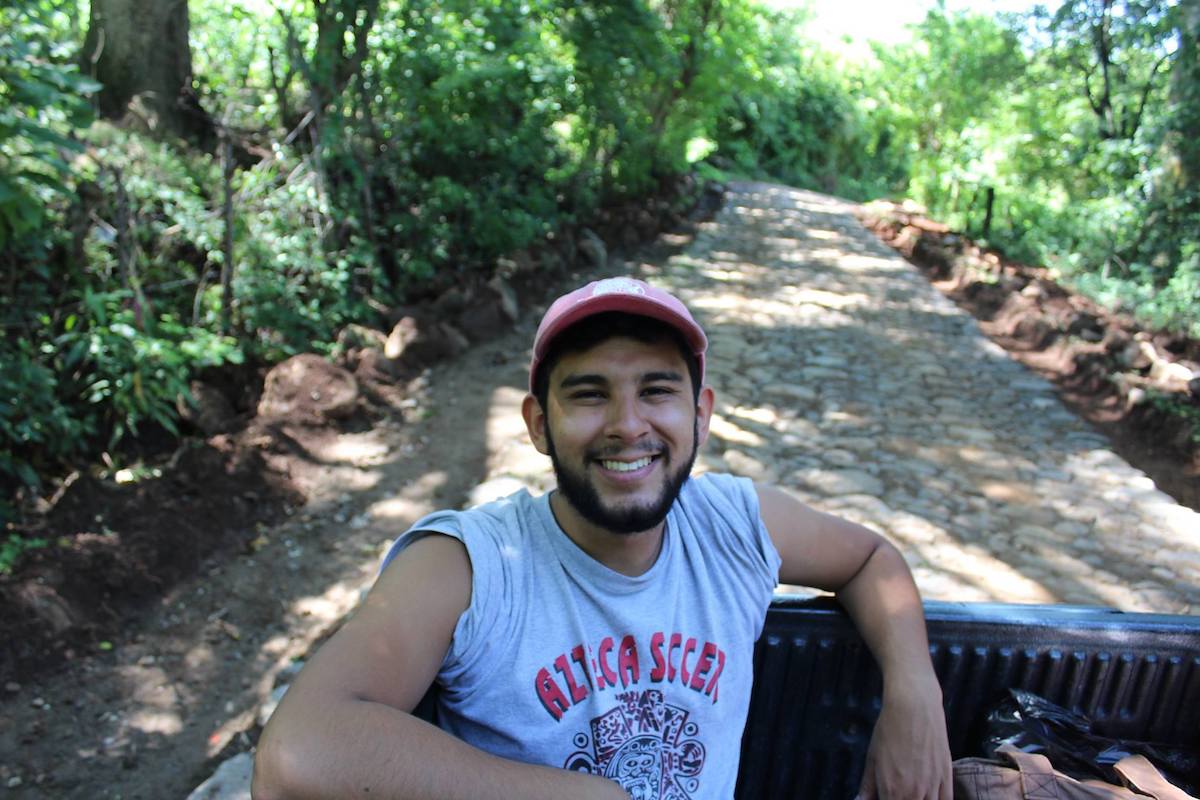Dreaming in Cumbias
By Rubén Reyes


“¡Claro que es salvadoreño, los padres son de aquí!”
The statement, though said reassuringly, felt deep like a cut. There was no lie in it.
Mami is from San Vicente. Well, it’s really closer to Apastepeque, and even more specifically from the piece of the highway they call Santa Paula. Papi is from Santa Tecla. If you want to get more specific, he grew up seven blocks from la catedral. On his block today, there are approximately six barbershops just steps from each other. The civil war loomed, a dark fog before and after their journeys to the U.S., at different points on the timeline of that long-drawn conflict.
I grew up miles away, in a suburb of Los Angeles, where most of the Salvadoreños in my life were blood relatives. I learned to read in classrooms with other children of immigrants, but most with parents from Mexico or China or Korea. My family went to El Salvador almost every other summer, so I had a connection with the country in that way, but growing up in the states separated me so much from my parents’ upbringing. I knew nothing of milking cows or harvesting la milpa or shaping round tortillas perfectly for the comal.
The formative things in my life were not very Salvadoran. I devoured Magic Tree House books and watched Jurassic Park movies religiously, as if doing so would transport me onto Isla Nublar. When Mami made pupusas, it was a ceremony since we’d have to drive out of town to the closest market that sold the queso y chicharrón she needed. When in high school, I ate pho, Korean BBQ, or Chinese takeout more often than I did pupusas.
Making a connection with El Salvador and its histories became an obsession once I got to college, but for so much of my life my conception of my cultural identity was mediated by other cultures based here in the United States. I was Salvadoreño, but there was a voice somewhere deep inside me that whispered that I was simply convincing myself of a lie.
Just because your parents are from a place it does not mean that you can also claim it fully as yours. That trope, especially in diasporic literature, is almost overplayed. Your tongue is too heavy, too slow, or constantly stumbling over your parent’s Spanish. You cannot determine whether you’re from here or from there, and you wonder if your only home is the hyphen that separates you and your parents’ homeland.
Yet, just because something is overplayed or oversaturated, it does not lessen the way it sends an anvil through your lower gut. It does not remedy the way you find yourself furiously searching for a place where you belong. I have often found myself in El Salvador reassured of my status as a salvadoreño, a faint label that I held onto for so long. If people in la patria deemed me authentic, who was I to question them?
But in a world when Salvadorans have been scattered all over the world (by a U.S. funded civil war, by Western economic development policies, by gang violence conceived abroad and deported back) establishing authenticity is an impossible task.
I’m that kid dreaming in cumbias, scrambling to make sense of the news in both English and Spanish, flexing an academic mindset that some days feels like an overcoat two sizes too large, dealing in jargon and social cues, building bridges out of his tears, cobbling together an identity out of spilled pieces, grasping for the words that tell me who I am, what I am, where I am, and what it means to be me, what it means to be Salvadoreño, Salvadoran, Salvadoran-American, americano-salvadoreño.
¿Qué mierda significa ser salvadoreño? ¿Qué mierda significa ser americano? ¿Qué mierda significa que somos ambos y simultáneamente ninguno?
***
For more Stories From El Salvador, visit their site here. If you want to share your own story, contact them here. You can follow the group on Instagram @storiesfromelsalvador or on Facebook.


